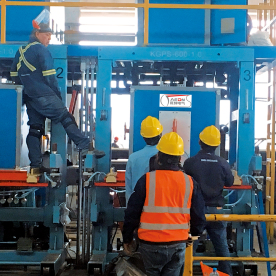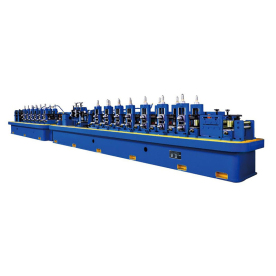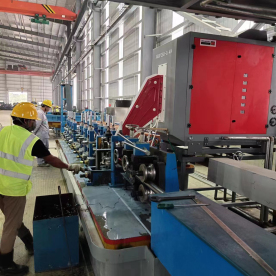[High frequency welder]Introduction to High Frequency Welder: Definition, Uses, and Benefits
News 2025-4-21
In various industrial and manufacturing processes, high frequency welders play a crucial role. This article will provide an overview of high frequency welders, their definition, uses, and benefits to help you understand their importance.

Introduction to High Frequency Welder: Definition, Uses, and Benefits
High frequency welder is a type of equipment that uses high-frequency electrical current to join two pieces of material together. This welding process involves the application of high-frequency electromagnetic fields, which generate heat at the interface of the materials to be welded. The heat caused by the high-frequency current induces molecular bonding between the materials, resulting in a strong and secure joint.

Introduction to High Frequency Welder: Definition, Uses, and Benefits

Introduction to High Frequency Welder: Definition, Uses, and Benefits
1. Welding of plastics and plastic films 2. Bonding of wire and cable connections 3. Joining of metal components in automotive and aerospace industries 4. Manufacturing of medical devices and components 5. Packaging and sealing of products such as food and beverages
Benefits of High Frequency Welder
There are several benefits associated with using high frequency welders. Some of the key benefits include:
1. Improved Quality: High frequency welding provides a consistent and reliable welding quality, resulting in strong and secure joints. 2. Cost-Effective: This welding process is relatively cost-effective, especially for welding thin materials. It also reduces the overall production time and improves productivity. 3. Versatile: High frequency welders can be used to weld various materials, including metals, plastics, and composites. 4. Cleanliness: The welding process does not involve the use of flux or additional chemicals, ensuring clean and contamination-free joints. 5. Energy Efficient: High frequency welding consumes less energy compared to other welding methods, making it an energy-efficient option.
In conclusion, high frequency welders are essential equipment in various industries, offering numerous benefits such as improved quality, cost-effectiveness, versatility, cleanliness, and energy efficiency. With the continuous advancement in technology, high frequency welding is becoming more popular and widely used in different applications.
